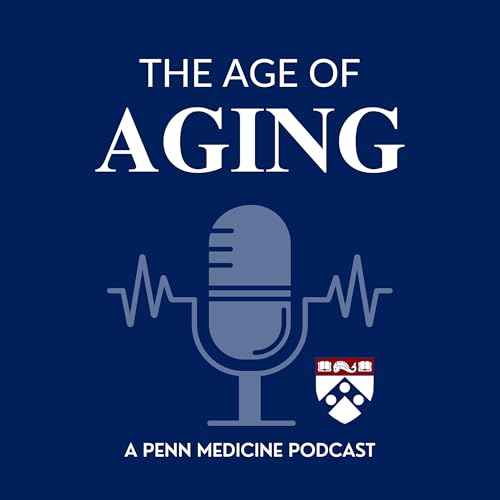We all hope that we can age with as much independence, purpose, and well-being as possible in our later years. Unfortunately, aging is never so straightforward and we will all face our own unique challenges and complexities as we get older. So, with all this uncertainty, how do we get the most out of this later stage of life?
In our second episode of the Age of Aging, we explore stories about maintaining dignity, health, and a sense of meaning in our older years.
Our first story will look at a new model for care called “Supported Decision-Making,” which aims to give those with impairment greater autonomy for as long as possible. For our second, Dr. Claudia Kawas discusses her research on the oldest people in our population and what they can tell us about aging. Then, we will hear about the late Carl Duzen, who began creating art as his dementia from Alzheimer’s progressed. Our final story will cover Memory Cafés, a major program at Penn and beyond, which provides a safe space for art and community for those living with dementia.
Resources
- Learn more about Supported Decision-Making
- Check out the ACLU’s Supported Decision-Making Resource Library
- Watch the extended interview with Dr. Claudia Kawas
- Carl Duzen on “It’ll Make Sense When You’re Older” by This American Life
- Moment to Moment by Mike Attie
- Learn more about Carl Duzen
- More information on Memory Cafés (AARP)
- Learn more about Memory Cafés at the Penn Memory Center
Thank you to Emily Largent, PhD, RN, Claudia Kawas, MD, Carl Duzen, PhD, Susan Jewett, Louise Qualtrene, Marjorie Snelling, Meg Kalafsky, MHCI, Debbie Feldman, Joanne Beam for being a part of this episode. Thanks as well to the Quaker Notes for their wonderful singing.
The Age of Aging is a Penn Memory Center production hosted by Editorial Director Terrence Casey and Producer Jake Johnson, in partnership with the Penn FTD Center, the Penn Institute on Aging, and UPenn’s Alzheimer’s Disease Research Center. Contributors include Nicolette Calcavecchia, Marie Ingegneri, Jason Karlawish, Cait Kearney, Emily Largent, Meg McCarthy, and Olivia Voz...
 2024/11/1229 分
2024/11/1229 分 2024/10/2927 分
2024/10/2927 分 2024/10/1528 分
2024/10/1528 分 2024/10/0122 分
2024/10/0122 分 2024/09/1710 分
2024/09/1710 分 2024/09/0342 分
2024/09/0342 分 2024/08/2035 分
2024/08/2035 分 2024/08/0643 分
2024/08/0643 分
